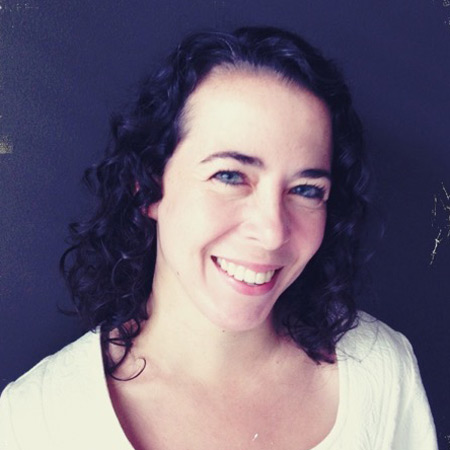Tell us a very short story about your writing life.
There are, maybe, a couple of magical writing days per year. Last week I was at the Barrelhouse/Hobart Writers Camp in central Pennsylvania. On Saturday morning, I set up my “office” outside and drafted two stories while listening to the sound of the creek in front of me. A turtle passed by and then another animal ran into the bushes so quickly I couldn’t see what it was. There were other writers within view, all busy working, all giving each other the space needed to work, yet there was a supportive, community vibe at the same time. That was one of the magical days.
Most days, my writing life is incredibly boring. It involves a lot of sitting at my desk. My cat will come by now and then, walk across my keyboard and maybe knock something off my desk for the fun of it. On the good days, there are some words on the page at the end of the day. On bad days, I’ve spent most of my time on Twitter or doing laundry.
As an editor for Storyscape, a reader for SmokeLong, and as a new editor for Proximity you read so many submissions. What element of writing, when well done, most gets your attention and makes you want to accept a story? What element when executed poorly do you think makes it a little easier to reject a story?
That’s such a great question. I do read a lot of submissions, and that has helped me clarify what I like and don’t like. I’m always looking for character. A fully realized character will quickly grab my attention: someone with flaws, someone who wants something, or is missing something, or longing for something. I don’t have to like the character, but I need to feel like this person exists in the world, somewhere, even if it’s not my world. If the character in a story doesn’t feel real, or is written in a clichéd way, then it’s easier to reject. Another essential element for me is some kind of narrative, which connects to character. The piece has to tell a story. There doesn’t need to be an elaborate plot, but the character needs to do something, or at least want to do something. Stories in which absolutely nothing happens are easier to reject.
A recurring element in some of your writing is female characters considering how to or what it means to do right by other women, especially the women in their families. Has this always been a focus in your writing? Who are some writers that you think consistently create complex female characters?
No, that hasn’t always been a focus. Years ago, I wrote primarily about male-female relationships: marriage, divorce, etc. Those kinds of stories are a lot less interesting to me now. I think we all write to find our way through things, or to figure out how we feel about certain things, so when my own love life was unstable, I was drawn to writing those types of stories. Now I find women and their relationships with other women, whether they are friends, mothers, daughters, etc. to be more intriguing. A lot of great writers are creating complex, interesting female characters. Some favorites include A.M. Homes, Katie Cortese, Sara Lippman, Victoria Redel, and Leesa Cross-Smith.
What is your definition of flash fiction, in 10 words or less?
Can I quote Shakespeare? “Though she be but little, she is fierce.” Or in my own words: A tiny story that surprises with its might.


 The core workshop of SmokeLong Fitness is all in writing, so you can take part from anywhere at anytime. We are excited about creating a supportive, consistent and structured environment for flash writers to work on their craft in a community. We are thrilled and proud to say that our workshop participants have won, placed, or been listed in every major flash competition. Community works.
The core workshop of SmokeLong Fitness is all in writing, so you can take part from anywhere at anytime. We are excited about creating a supportive, consistent and structured environment for flash writers to work on their craft in a community. We are thrilled and proud to say that our workshop participants have won, placed, or been listed in every major flash competition. Community works.